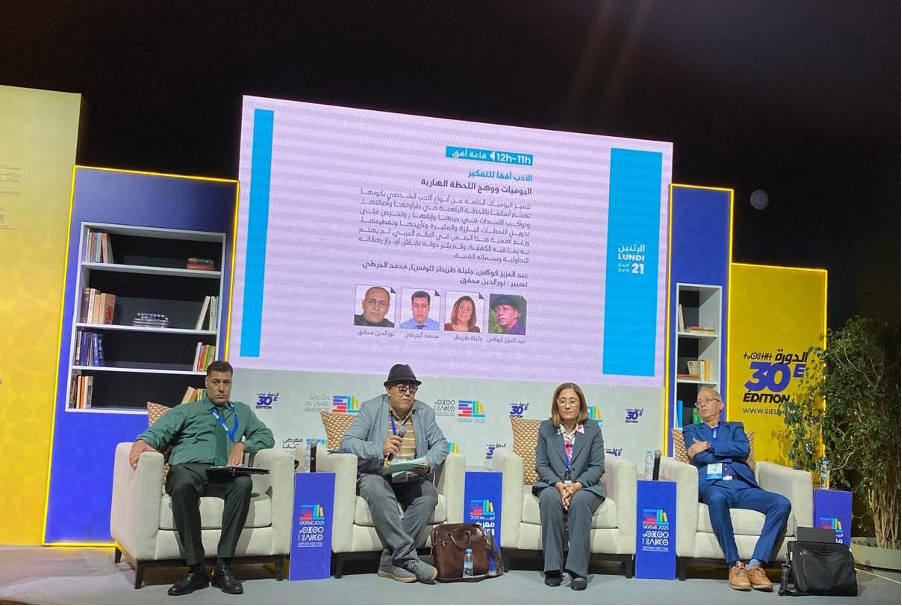
Writers and Thinkers explore the intimate, philosophical, and existential layers of the diary at the International Book and Publishing Fair

Writers and Thinkers explore the intimate, philosophical, and existential layers of the diary at the International Book and Publishing Fair

Writers and Thinkers explore the intimate, philosophical, and existential layers of the diary at the International Book and Publishing Fair
The art of the Diary has gotten the attention of the Ministry of Youth, Culture, and Communication, which organized a thought-provoking talk about it as part of the rich cultural program of the International Book and Publishing Fair. The talk turned the spotlight on a literary form that has been quietly yet steadily gaining ground in the Arab world.
Jalila Tratr, a Tunisian scholar and literary expert, discussed how diary writing is more than just self-expression; it’s a mirror of personal and collective history,” she stated. “Diaries shape identity. Like autobiographies and memoirs, they offer historical insight into the life of the individual.” Jalila Tratr invited the audience to consider the temporal layers of diaries, both the quantitative (how often entries are written) and the qualitative (the depth and feeling they carry). She also distinguished between the "external diary," in which the writer engages with the outer world, and the "internal diary," which reveals deep emotional and intimate landscapes. As she noted, “Diaries have a strong emotional and personal connection, like the diaries of Aboul-Qacem Echebbi, where he wrote about the death of his father.”
Moroccan writer, journalist, and translator Abdelaziz Koukass offered a philosophical take on diary writing, describing it as a form of resistance to the inevitable passage of time. “Diaries are an attempt to hold onto time that drives us toward death,” he said. “Before colonialism in Morocco, our concerns were focused on public liberties, but now, in a post-liberation era, we’ve shifted to the personal and reflective.”
In his contribution, the Moroccan writer Mohamed Jarti, noted the scarcity of attention given to diary writing in the broader scope of Arabic literature, despite its growing relevance. “In reality, there is little interest in diaries within the Arab literary scene,” he remarked. “Diaries are simple in their writing style; the writer focuses on capturing the rhythm of life. Their value lies in bearing witness, in documenting a personal existence.” He added, “Diaries emerge from an existential anxiety. They are a resistance to the death of the human being, a refuge, a personal sanctuary for the writer.”
The talk has shown the audience that the art of the diary has transformed from a private practice to a recognized literary form, one that blends memory, and philosophy. It is no secret that the diary is now being embraced for its ability to capture the invisible threads of daily life and internal struggle. As more writers in the Arab world explore this genre, the diary is emerging into a powerful tool of self-definition and cultural reflection.
